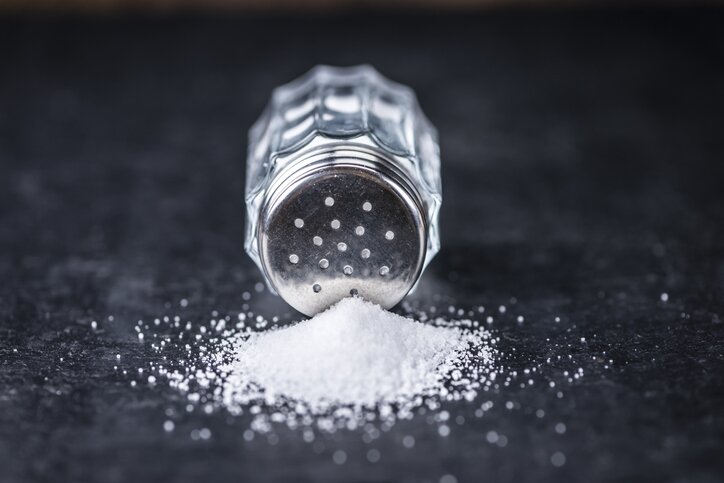The Shakedown on Salt: Six Tips for Avoiding Hidden Sodium
Consuming too much sodium can be harmful to your heart.
It’s been linked to high blood pressure, a risk factor for cardiovascular issues including heart disease and stroke. Research has also connected a high sodium diet with chronic kidney disease. By reducing your intake of sodium, you can lessen your chances of developing these health risks.
In this article, we’ve compiled some helpful strategies for slashing sodium in your diet.

Skip the salt shaker.
Avoid adding table salt to your food. The American diet is loaded with sodium, largely due to our reliance on processed and packaged foods like frozen dinners, snacks, and deli meats. These items can be quite high in sodium yet may not taste particularly salty, which can be misleading to individuals trying to reduce their sodium intake.
Avoid or minimize your consumption of the “salty six”.
The American Heart Association has created a list of popular foods that typically have a very high sodium content, known as the “salty six”. Eliminate these foods altogether, or at a minimum, consume them sparingly:
- Bread and rolls: Each piece can have up to 230 mg of sodium
- Pizza: One slice can contain as much as 860 mg of sodium
- Cold cuts and cured meats: Two slices of bologna have 600 mg of sodium
- Fried or breaded poultry: Just 3 ounces of chicken nuggets can contain nearly 600 mg of sodium, and this doesn’t even include condiments and dipping sauces
- Canned soups: One cup of canned chicken noodle soup has an average of 1,000 mg of sodium, nearly half of the daily recommended sodium allowance
- Sandwiches: The bread, cured meats, processed cheese, and condiments they contain can easily surpass 1,800 mg of sodium
Read nutritional information carefully.
Checking labels is the only way to know how much sodium is in your food. If you buy packaged or processed foods, choose items labeled ‘sodium-free’ or ‘very low sodium’. And keep in mind that the nutritional information on labels references a particular serving size. If you consume more than that amount, you’ll need to take into account the additional salt and calories.
Use alternative sources of flavor.
There is a wide range of herbs and spices that can be used to enhance the flavor of food without adding salt. Lemon juice, garlic, pepper, and onion, for example, can make food tasty without damaging your health.
Before dining out, do your research.
Visit the restaurant's website, which may list the sodium content of various dishes served there. If that information isn’t available, when you place your order, request that it be served without added salt.
Consume mostly fresh, whole foods.
The U.S. Food and Drug Administration reports that over 70% of the average person's sodium intake comes from foods that are packaged or prepared. You can avoid these high-sodium sources by eating primarily fresh, whole foods. This includes fresh fruits and veggies, fresh lean meats, seafood, unseasoned whole grains, and other non-processed items typically found in the produce, meat, and seafood sections of the grocery store.
Make these changes gradually but consistently and you'll find that you don't even miss the salt. If you need more information about how to reduce your sodium intake or if we can be of assistance in any way, we are here to help. Please contact us anytime.
About Vaughn Greene Funeral Services: For more than 25 years, Vaughn Greene Funeral Services has been providing a ministry of care to Baltimore’s African American community. As a leading local, minority- and family-owned provider, we promise to provide our highest level of service and respect to families who entrust us to honor their loved ones. For more information about our funeral, cremation, memorial, and repast services, please call us at 410.655.0015 or visit us online at https://vaughncgreene.com/.







Comments